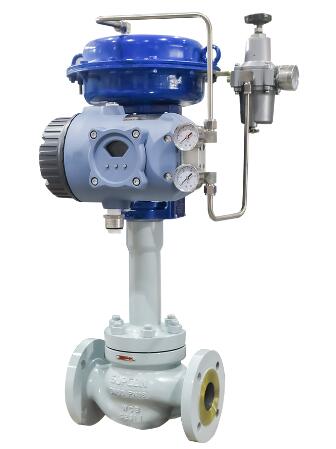Sep. 11, 2024
Self-operated valves are essential components in various industries for controlling fluid flow, pressure, and temperature without the need for external power sources or complex control systems. These valves offer numerous advantages, including energy efficiency, ease of use, and reliability, making them a valuable solution for industries like chemical processing, water treatment, and manufacturing. This article will explore why self-operated valves are crucial for modern industrial applications.

One of the primary reasons you need self-operated valves is their energy efficiency. Unlike traditional control valves that rely on external power sources, such as electricity or compressed air, self-operated valves function using the energy generated by the system itself. The pressure from the fluid or gas being controlled activates the valve mechanism, eliminating the need for external energy inputs.
This feature not only reduces energy consumption but also leads to significant cost savings over time. Industries can lower their operational expenses by minimizing the need for power and maintenance associated with electrically or pneumatically operated valves. Self-operated valves are particularly useful in remote locations where access to power sources may be limited or expensive to install.
Self-operated valves have a simple, robust design that makes them easy to install and maintain. They do not require complicated control systems, sensors, or actuators, which reduces the chances of malfunction and simplifies the maintenance process. In many cases, self-operated valves can be installed directly into existing pipelines without extensive modifications, making them a convenient solution for both new installations and retrofits.
The lack of external control systems also reduces the likelihood of mechanical failure. Since there are fewer moving parts, self-operated valves are less prone to wear and tear, contributing to their long lifespan and reliability. Regular maintenance typically involves checking the valve seat and diaphragm for wear, ensuring that the valve continues to function effectively without requiring frequent repairs or replacements.
Another advantage of self-operated valves is their ability to perform reliably in harsh industrial environments. These valves are designed to withstand extreme temperatures, high pressures, and corrosive fluids, making them suitable for use in industries such as oil and gas, chemical processing, and power generation. The rugged construction of self-operated valves ensures that they can handle demanding conditions without compromising performance.
In industries where safety and precision are paramount, self-operated valves provide a dependable solution for maintaining system integrity. Their automatic operation means that they can respond quickly to changes in pressure or temperature, helping to prevent equipment damage or system failures.
Self-operated valves are highly versatile and can be used for a wide range of applications, including pressure regulation, temperature control, and flow management. In pressure regulation, for example, the valve automatically adjusts to maintain a consistent pressure level, ensuring that systems operate within safe parameters. This versatility makes self-operated valves a preferred choice in industries that require precise control over fluid and gas systems.
For temperature control, self-operated valves regulate the flow of cooling or heating media to maintain the desired temperature in process systems. This capability is especially important in applications like chemical reactions, where temperature control is critical to product quality and safety. By responding automatically to changes in process conditions, self-operated valves help maintain optimal operating conditions with minimal intervention.
As industries move towards greater automation, self-operated valves offer a cost-effective solution for automating fluid control processes. These valves do not require expensive electronic control systems or complex programming, making them an attractive option for companies looking to streamline operations without incurring significant costs.
By incorporating self-operated valves into automated systems, industries can achieve more precise control over their processes while minimizing the need for manual intervention. This leads to improved efficiency, reduced labor costs, and enhanced productivity, all of which contribute to better overall performance and profitability.
Self-operated valves provide a reliable, energy-efficient, and cost-effective solution for controlling fluid flow, pressure, and temperature in a variety of industrial applications. Their simplicity, durability, and ability to perform in harsh environments make them an essential tool for industries seeking to optimize performance and reduce operational costs. For more information about self-operated valves or to find a reliable supplier, feel free to contact us for expert guidance and support tailored to your specific needs.
Headquarter Add.: SUPCON Park, No.309 Liuhe Road, Binjiang District, Hangzhou, 310053, China.
Tel.: +86 571 8111 9774
Fax: +86 571 8111 9737
E-mail: [email protected]
